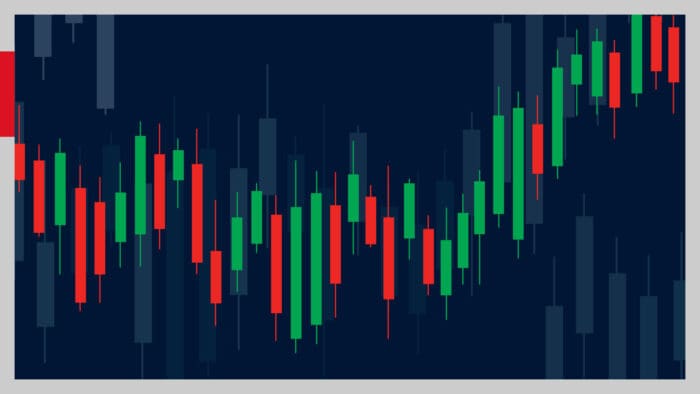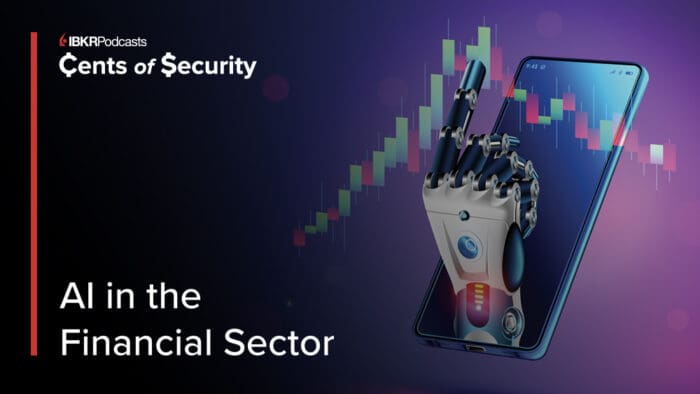1/ PPI Confirms
2/ Inverted Yield Curve
3/ Financial Sector Gains
4/ Buffett Surging…Again
Investopedia is partnering with CMT Association on this newsletter. The contents of this newsletter are for informational and educational purposes only, however, and do not constitute investing advice. The guest authors, which may sell research to investors, and may trade or hold positions in securities mentioned herein do not represent the views of CMT Association or Investopedia. Please consult a financial advisor for investment recommendations and services.
1/ PPI Confirms
Nowadays when an event makes the news, people’s reaction to it on social media data is nearly as interesting as the event itself. Technical analysts have understood this principle for decades. The data from a newsmaking report is at best half the story.
The market’s reaction to the data is often more interesting to technical analysts than the data that inspired the reaction. That is surely the case with the Consumer Price Index (CPI) and Producer Price Index (PPI) reports released this week. It’s one thing to see the CPI detailing incrementally higher inflation than expected and for it to be confirmed by the PPI Report this morning, but the real surprise is the reaction in market prices. Market participants decided now is a good time to be a buyer even with the prospect of more rate hikes by the Federal Open Market Committee (FOMC) starting next week.

Perhaps the reaction is explained by the coincidental result found in the Unemployment Claims report. This came in lower than expected along with Retail Sales which came in higher than forecast. These signals that the economy may be strengthening coincident with inflation seem to indicate that higher prices are not having the dampening effect on the economy that most people expect.
2/ Muted Market Reaction
The market appears to be shrugging off the signs of rebounding inflation. The problem here is that the historical consequence to these kinds of conditions that exist right now is very often that a recession follows. The current conditions, where the FOMC has to forcefully hike rates faster than the market wants to, are what creates something called an inverted yield curve.
This refers to the idea that short-term borrowing rates are higher than longer-term ones. This is easily tracked by subtracting yield on the 2-year U.S. Treasury Note from the yield on the 10-year note (see chart below).

This weekly chart depicts yield curve inversions going back to 1989. All three previous inversions have preceded significant recessionary periods. The current inversion has been much deeper and more prolonged than the other three, and many analysts have expressed concern that this may be a signal of unavoidably difficult times ahead.
However the 1989 inversion, the most severe of the three, led to the shortest and least severe recessionary period of the three, so the forecast of a lengthy and long-lasting recession may not be valid, especially considering the extraordinary pandemic-driven circumstances leading up to this instance of an inverted yield curve.
3/ Financial Sector Gains
Technical analysts familiar with sector analysis know the rotation of market favor from one sector to another often accompanies significant market events. The combination of inflation reports, FOMC meetings and the end of the third quarter, could easily bring about a shift in investor behavior.
Specifically, some sectors might begin to show relative strength where before they had shown weakness. The financial sector may be undergoing such a shift right now. The chart below depicts a one-hour increment of price action between the S&P 500 Index (SPX) and State Street’s SPDR Finance Sector ETF (XLF).

The key feature of this chart is how XLF showed relatively poorer performance than SPX up until recently. The price action in the past week, including the anticipation and report of the inflation numbers, clearly shows XLF begin to flip from underperformance to outperformance.
That means investors are signaling the fact that they think the financial sector should benefit from continued and persistently higher interest rates.
4/ Buffett Surging…Again
Two stocks within the finance sector seem to have caught the attention of investors recently. Warren Buffett’s Berkshire Hathaway (BRK.B) and Mastercard (MA) have both surged ahead of XLF (see chart below).

The performance among financial stocks is unevenly distributed. Not all are able to outperform the averages. Citigroup (C) is lagging behind quite noticeably, while Goldman Sachs (GS), Morgan Stanley (MS) and J.P. Morgan Chase (JPM) holds closer to XLF.
The principle of momentum suggests that stocks which start out strong in a trend, are the most likely to continue showing relative strength as the trend progresses. Relatively weaker stocks are more likely to similarly underperform in the weeks and months following a trend shift.
—
Originally posted 15th September 2023
Disclosure: Investopedia
Investopedia.com: The comments, opinions and analyses expressed herein are for informational purposes only and should not be considered individual investment advice or recommendations to invest in any security or to adopt any investment strategy. While we believe the information provided herein is reliable, we do not warrant its accuracy or completeness. The views and strategies described on our content may not be suitable for all investors. Because market and economic conditions are subject to rapid change, all comments, opinions and analyses contained within our content are rendered as of the date of the posting and may change without notice. The material is not intended as a complete analysis of every material fact regarding any country, region, market, industry, investment or strategy. This information is intended for US residents only.
Disclosure: Interactive Brokers
Information posted on IBKR Campus that is provided by third-parties does NOT constitute a recommendation that you should contract for the services of that third party. Third-party participants who contribute to IBKR Campus are independent of Interactive Brokers and Interactive Brokers does not make any representations or warranties concerning the services offered, their past or future performance, or the accuracy of the information provided by the third party. Past performance is no guarantee of future results.
This material is from Investopedia and is being posted with its permission. The views expressed in this material are solely those of the author and/or Investopedia and Interactive Brokers is not endorsing or recommending any investment or trading discussed in the material. This material is not and should not be construed as an offer to buy or sell any security. It should not be construed as research or investment advice or a recommendation to buy, sell or hold any security or commodity. This material does not and is not intended to take into account the particular financial conditions, investment objectives or requirements of individual customers. Before acting on this material, you should consider whether it is suitable for your particular circumstances and, as necessary, seek professional advice.
Disclosure: ETFs
Any discussion or mention of an ETF is not to be construed as recommendation, promotion or solicitation. All investors should review and consider associated investment risks, charges and expenses of the investment company or fund prior to investing. Before acting on this material, you should consider whether it is suitable for your particular circumstances and, as necessary, seek professional advice.

















Join The Conversation
If you have a general question, it may already be covered in our FAQs. If you have an account-specific question or concern, please reach out to Client Services.